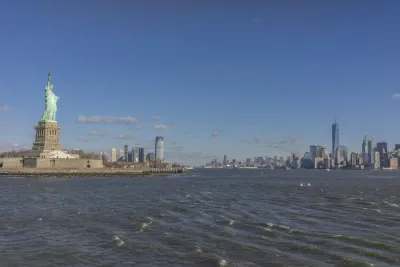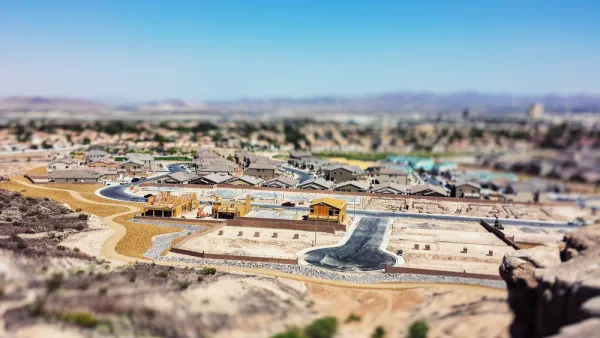A contentious debate broke out this week, after a pundit proposed breaking up the consolidation of economic and political power of the country's liberal cities.

New York Times pundit Ross Douthat went and did something controversial over the weekend and provided a dissenting take on the narrative of urban areas as the economic powerhouses and diversity successes of the United States.
So has the heyday of these meritocratic agglomerations actually made America greater? I think not. In the age of the liberal city — dating, one might argue, to the urban recovery of the 1990s — economic growth has been slack, political dysfunction worse, and technological progress slow outside the online sector.
After stating his premise, Douthat goes on to propose an idea he admits is "Implausible, perhaps even ridiculous":
We should treat liberal cities the way liberals treat corporate monopolies — not as growth-enhancing assets, but as trusts that concentrate wealth and power and conspire against the public good. And instead of trying to make them a little more egalitarian with looser zoning rules and more affordable housing, we should make like Teddy Roosevelt and try to break them up.
Douthat provides more detail on what that deconsolidation would like that, and sparked a lot of social media discussion in the process.
One response to Douthat's proposal is especially worth noting, that of City Observatory's Joe Cortright, who writes that Douthat's proposal "one of the most spectacularly wrong-headed policy prescriptions for economic development that has ever been offered."
According to Cortright's well-evidenced response, breaking up cities would not spread the wealth, but "actually destroy value and make the nation worse off."
FULL STORY: Break Up the Liberal City

Analysis: Cybertruck Fatality Rate Far Exceeds That of Ford Pinto
The Tesla Cybertruck was recalled seven times last year.

National Parks Layoffs Will Cause Communities to Lose Billions
Thousands of essential park workers were laid off this week, just before the busy spring break season.

Retro-silient?: America’s First “Eco-burb,” The Woodlands Turns 50
A master-planned community north of Houston offers lessons on green infrastructure and resilient design, but falls short of its founder’s lofty affordability and walkability goals.

Test News Post 1
This is a summary

Analysis: Cybertruck Fatality Rate Far Exceeds That of Ford Pinto
The Tesla Cybertruck was recalled seven times last year.

Test News Headline 46
Test for the image on the front page.
Urban Design for Planners 1: Software Tools
This six-course series explores essential urban design concepts using open source software and equips planners with the tools they need to participate fully in the urban design process.
Planning for Universal Design
Learn the tools for implementing Universal Design in planning regulations.
EMC Planning Group, Inc.
Planetizen
Planetizen
Mpact (formerly Rail~Volution)
Great Falls Development Authority, Inc.
HUDs Office of Policy Development and Research
NYU Wagner Graduate School of Public Service




























